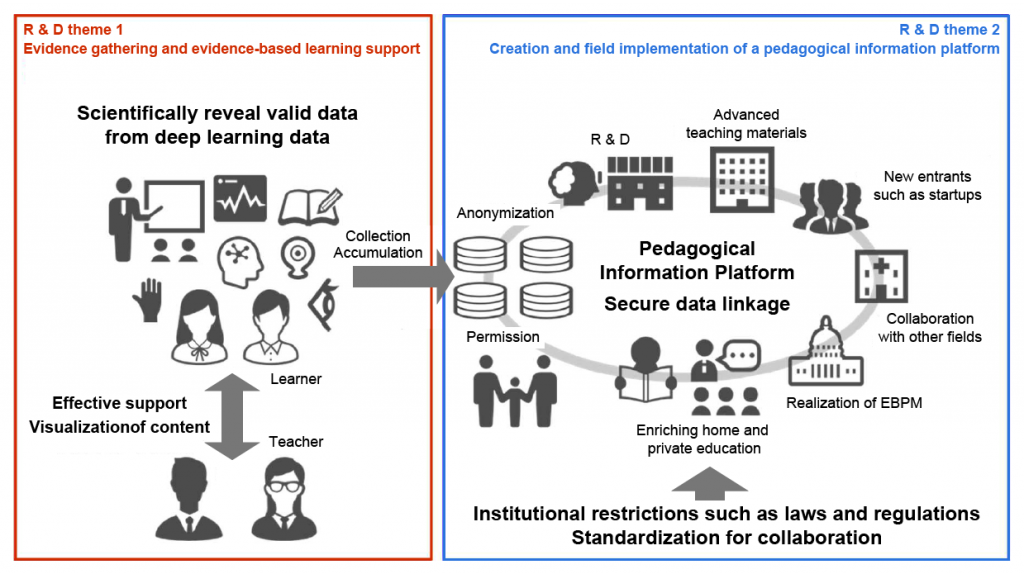In this research, we collect and analyze learning data logs which is otherwise difficult to synthesize automatically and requires advanced interaction tracking. The approach consumes the domain knowledge of learning and cognitive science, artificial intelligence, and information and communication infrastructure technology. By researching and developing the AI driven pedagogical platform, we aim to realize a precision education that can be tailored to the characteristics of learners based on evidence.
Overview
Aiming for fair and individually optimized learning support, we aim to design and develop a learning analytics enhanced pedagogical platform that organically integrates learning cognitive science, artificial intelligence, and information infrastructure technology.
The target is to improve the academic ability of elementary, junior high and high school students in English and Mathematics courses. The system enables logging of interaction data between students and teachers at school and the learning history on tablet terminals. Based on the accumulated learning logs from more than 2,000 learners over a longitudinal period we aim to recommend optimal learning content and propose learning paths using techniques such as similarity matching. It further aims to build a technology framework which enables research and production system to mutually connect to the learning logs without compromising any data privacy policies and thereby co-evolve research and industry partnership.
In carrying out this R & D, we have set the following two R & D themes.
- R & D theme 1: Evidence gathering platform and evidence-based learning support
- R & D Theme 2: Implementation of the precision education platform

Research contents in this laboratory
In our laboratory, we will develop the core modules such as knowledge models and learner models necessary for supporting of education and learning through the LA platform.
We extract the knowledge elements to be taught from digital teaching materials and problems, build a knowledge model, and model the knowledge state of students from the browsing history of teaching materials and the answer history of questions associated with them. It also analyzes student learning logs to build learner models related to specific learning activity.
The knowledge model and learner model constructed in this way can be used to develop various teaching learning support tools such as recommending teaching materials, adaptive quizzes, and creation of optimal student’s groups for collaborative learning activities.

Research grant
- Strategic Innovation Creation Program (SIP) Phase 2
- “Research and development of precision education based on ICT / learning support technology / evidence using big data / AI” (FY2018-FY2020)